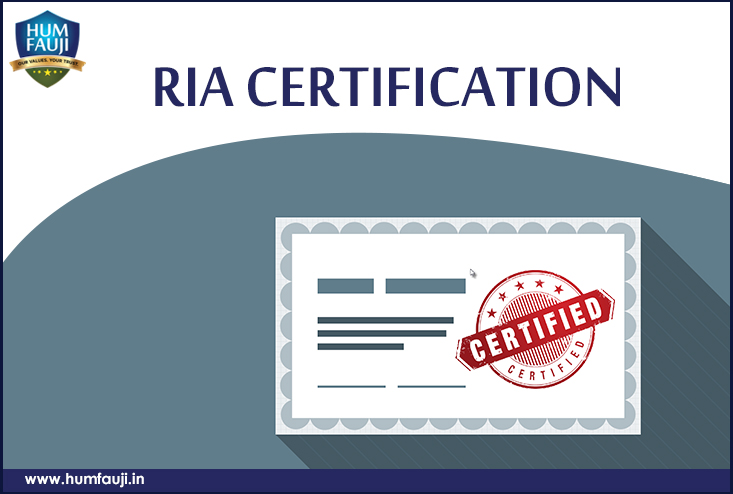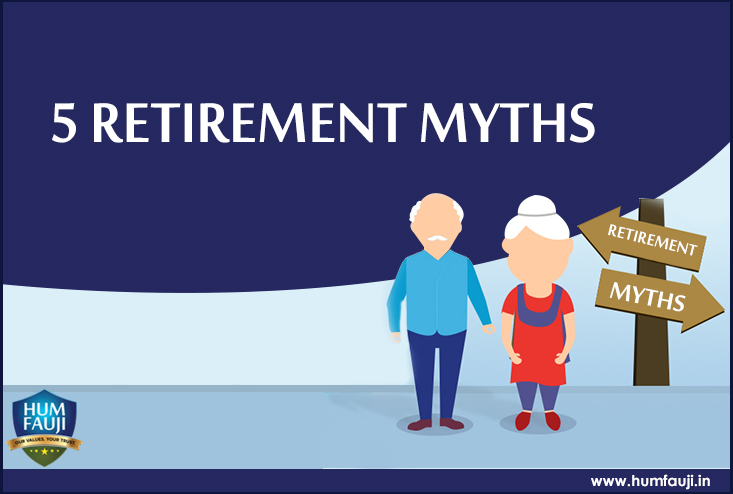Q&A at talks on Financial Management given by CEO, Hum Fauji Initiatives, to Higher Command Course at Mhow and Armed Forces Program Officers at IIM, Indore on 9 th Jan 2019
Our CEO, Col Sanjeev Govila (retd), had been invited to give a talk on ‘Personal Financial Management for Indian Army Officers’ to the students of Higher Command Wing, Army War College, Mhow. He also gave a talk to approx 35 officers undergoing the ‘Armed Forces Program’ (AFP) at IIM, Indore the same day. The talks were well appreciated at both the places and the Question & Answer (Q&A) Sessions at both the places far exceeded the time allotted.
Some of the questions asked, of common interest to serving and/or retired armed forces officers, are summarised below. Due to the sheer large number of questions asked, this will be given out as a series of 4 parts over next 8 days.
Below is the 1 st part of this Series:-
Q. Should we apply for commutation of pension? (Surprisingly asked by HC Course also!)
A. This has become an ever-green question lately. It is something like asking in general – which car should I buy Commuting, not commuting or partially commuting should be decided entirely on what are your future likely requirements and not merely by just a gut feeling or hearsay or just because a friend is commuting or not commuting. If you’re likely to be needing bulk money in future – children’s major educational requirements, children’s marriage, house construction or major renovation, need or desire to travel extensively, big loans to be paid off earliest due to your discomfort with large debt when retiring, etc – you may look at commutation. Commutation doesn’t have to be either 0% or 50% only – you can commute as you wish between 0 – 50%. However, if you’re likely to need more monthly income rather than bulk, then maybe you do not need commutation or need lesser commutation. In the latter case, you can even commute and invest the bulk amount efficiently to get the monthly income that you need in a more tax-efficient manner. Also remember that DA is never commuted and one gets the DA on full pension. You may like to read more on this on our blog at the link: https://humfauji.in/s=COMMUTATION
Q. Can I take a tax rebate on interest (under Section 24b) on two home loans at a time? How is this linked to one of the houses being self-occupied?
A. There is no problem in taking a tax rebate on home loans on as many residential houses as you possess, provided the laid down conditions for the same are fulfilled – you have the occupation certificate of the concerned houses (implying that the houses are ready for occupation), the houses are in your name and the total interest rebate is limited to Rs 2 Lakhs per year (balance can be carried over for 8 consecutive years).
Self-occupation of the house has nothing to do with this tax rebate and is connected with how rental received (or not received) by you will be taxed. One of your unoccupied houses is allowed to be treated as a self-occupied house, irrespective of whether you are staying in it or not. Eg, if you have three houses and two out of these have been lying vacant and one is on rent, then the rents that gets added to your income will be as follows: one of the unoccupied house will be treated as self-occupied (which one will that be, is your discretion and can change from one financial year to the other), the actual rent being received from one house will be added to your income, and a ‘deemed rent’ will be calculated of the third house even though it is unoccupied and again added to your income.
Q. Is Sukanya Samriddhi Yojana (SSY) good enough to be taken for my daughter?
A. ● SSY is a government-backed savings scheme for the welfare of the girl child.
● It encourages parents or legal guardians to save for the girl child’s education, marriage, or future expenses.
● Parents or legally appointed guardians of a female child who is under the age of 10 years.
● An account can be initiated with a nominal deposit of Rs. 250.
● Deposits can be made in multiples of Rs. 100, with a minimum annual deposit requirement of Rs. 250.
● The maximum annual deposit limit is Rs. 1.5 lakh.
● Account matures after 21 years from the date of opening or upon the marriage of the account holder after she turns 18.
● The interest rate is set by the government and is currently 7.6% per annum (as of September 2021).
● The interest is compounded on an annual basis and subsequently deposited into the account.
● Contributions to SSY are eligible for tax benefits under Section 80C, up to a maximum of Rs. 1.5 lakh per year.
● The interest earned is tax free. Also, the maturity amount is not taxable.
● Partial withdrawals up to 50% of the account balance are allowed after the girl child reaches the age of 18, but only for higher education expenses.
● The account is operated by the parent or guardian until the girl child reaches the age of 18, after which she can operate the account on her own.
● The objective of SSY is to provide financial security and support for the girl child’s education and marriage expenses.
Is it the best for you? Yes, if you are risk-averse and like to play it is very safe. But since the scheme is meant for the very long term, typically 11 – 21 years of investing, hybrid aggressive or equity diversified mutual funds, specially ELSS will deliver much better returns over such long periods of time while giving you a lot of flexibility of investments and withdrawal and even after accounting for their minor taxation. If you are risk-averse, you can use a 65:35 combination of equity funds and SSY to save for your lovely daughter.
Q. My father passed away leaving some physical share certificates at home which are in his name. What do I do with them?
A. As of today, no shares can be traded on Indian stock exchanges in physical form. Hence compulsorily they have to be dematted and transferred in your name. You need to have a demat account yourself to effect this transfer. Please find out the ‘Registrar and Transfer Agents’ (RTAs) of each company whose share certificate is held. This is quite easy by googling it. Most of the RTAs have their contact numbers and mail IDs listed on their websites. Give them a mail and ask for the procedure to go ahead. While the general documents required by each are on similar lines, there always are some small changes. Prepare those documents correctly and send to them. It can take up to a month or so for the dematting and transfer in your name. (To be continued….)













Comment (1)
Very good initiative. Keep up the good beginning……